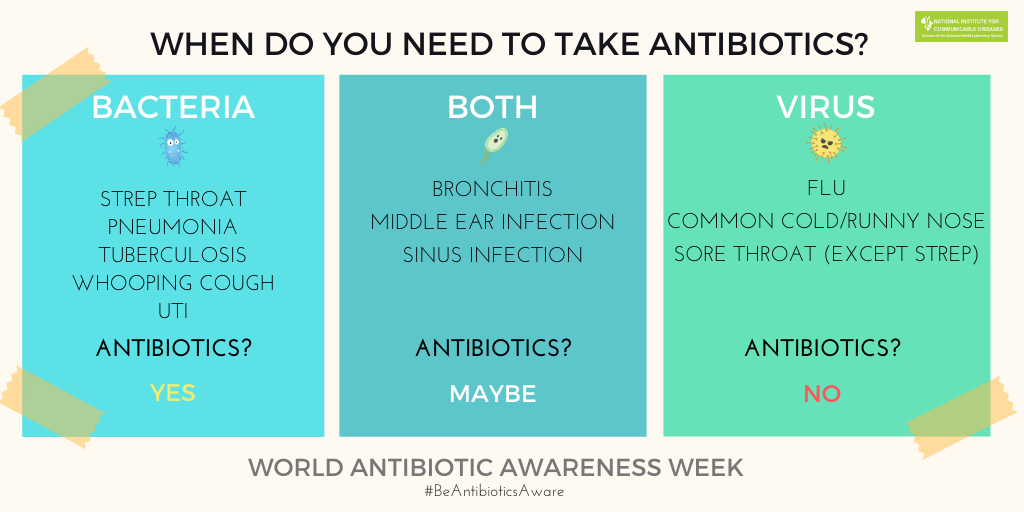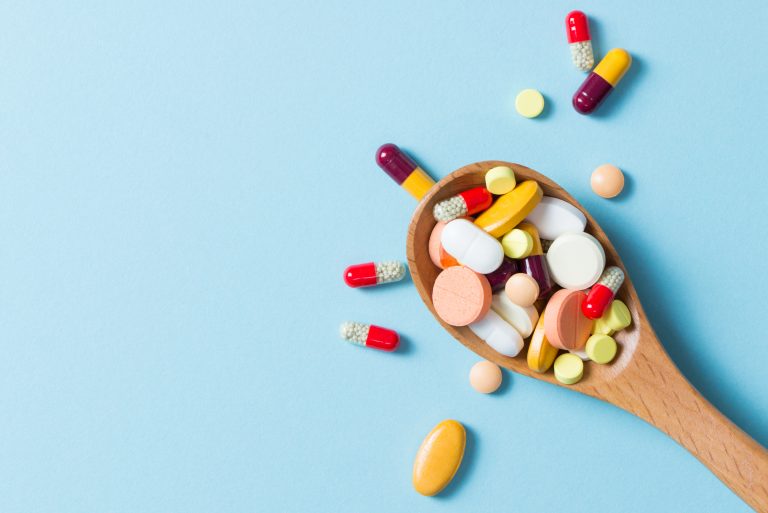The use of antibiotics is the single most important factor leading to antibiotic resistance around the world. Antibiotics are among the most commonly prescribed drugs used in human medicine. However, up to 50% of all the antibiotics prescribed for people are not needed or are not optimally effective as prescribed. Antibiotics are also commonly used for promoting growth in food animals, one type of use that is not necessary. Improving the way healthcare professionals prescribe antibiotics, and the way we take antibiotics helps keep us healthy now, helps fight antibiotic resistance, and ensures that these life-saving drugs will be available for future generations.
The most important way to reduce or prevent antibiotic resistance is by educating yourself about the proper use of antibiotics.
Here are seven facts you should know about antibiotics:
- Antibiotics save lives. When a patient needs antibiotics, the benefits outweigh the risks of side effects or antibiotic resistance.
- Antibiotics aren’t always the answer. Everyone can help improve antibiotic prescribing or use.
- Antibiotics do not work on viruses, such as colds and flu, or runny noses, even if the mucus is thick, yellow or green.
- Antibiotics are only needed for treating certain infections caused by bacteria. Antibiotics also won’t help some common bacterial infections including most cases of bronchitis, many sinus infections, and some ear infections.
- An antibiotic will not make you feel better if you have a virus. Respiratory viruses usually go away in a week or two without treatment. Ask your healthcare professional about the best way to feel better while your body fights off the virus.
- Taking antibiotics creates resistant bacteria. Antibiotic resistance occurs when bacteria develop the ability to defeat the drugs designed to kill them.
- If you need antibiotics, take them exactly as prescribed. Talk with your doctor if you have any questions about your antibiotics, or if you develop any side effects, especially diarrhoea, since that could be a Clostridium difficile (commonly referred to C-dif) infection which needs to be treated right away.






